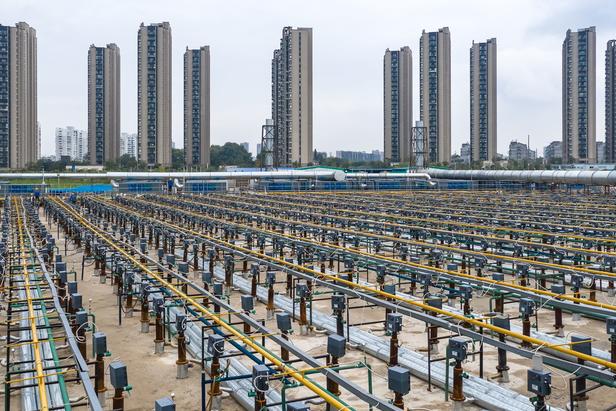Veolia possesses nearly 30 years of professional experience in the field of soil and groundwater remediation and is able to provide comprehensive and integrated remediation solutions to clients based on the site's pollution situation, site condition, and post-remediation site usage.
Nearly years of experience in soil and groundwater remediation
More than site restoration projects worldwide each year
Global network of over experts
Comprehensive and customized solutions
Veolia offers a comprehensive and tailored solution, adhering to the concept of sustainable development, to provide comprehensive services for urban construction and industrial clients, whether it is site investigation and remediation plans, engineering project management and implementation, dismantling and remediation of industrial sites, and emergency remediation of pollution.
Veolia has been engaged in soil and groundwater remediation in China for more than 10 years. DDBS Environmental Remediation Co., Ltd., a subsidiary of Veolia, is one of the professional soil remediation companies with the most project cases in China and has rich technical resources and project management experience. Its remediation projects cover heavy metal pollution such as metal smelting and electroplating, as well as organic pollution such as petroleum and fine chemicals, pesticides, etc., involving polluted sites in industries, rivers, landfill sites, oil fields, etc.
Key data of DDBS Environmental Remediation Co., Ltd.
More than engineering and investigation projects
More than organic pollution remediation projects
More than heavy metal pollution remediation projects
Core technology
What is GasThermal Remediation (GTR®)
Gas Thermal Remediation, developed by Gas Thermal Remediation Company in the United States, is a thermal desorption technology used for the remediation of contaminated sites and effective in treating all types of soil contaminated with organic pollutants, including hydrocarbons, polycyclic aromatic hydrocarbons, polychlorinated biphenyls, chlorinated organic compounds, dioxins, pesticides, etc.
The technique utilizes natural gas or fuel as a source of heat to provide thermal energy. It heats the targeted control area through thermal conduction, meanwhile, in conjunction with power control, negative pressure is generated to extract underground steam. The targeted control area can be partitioned and controlled independently to optimize the temperature gradient and energy consumption. The use of modular replication enables unlimited scalability and strong adaptability to project scale and site conditions.
Technical advantages
- Capable of covering volatile, semi-volatile organic pollutants;
- Applicable to various soil types, especially cohesive soils;
- No depth limitation, making it more advantageous for sites of deep pollution;
- Modular design providing extensibility and ideal for large-scale sites;
- Short project cycle and reusable system;
- Using clean energy with high energy utilization rate;
- Equipped with advanced steam treatment solutions to ensure zero secondary pollution to the atmosphere;
- Applicable in situ or ex situ.
Business cases

The site of Nanjing Coal Gasification Plant is located in Qixia District, Nanjing City and is currently the largest in-situ GTR soil remediation project in the world. The pollutants include heavy metals, benzene compounds, total petroleum hydrocarbons, and polycyclic aromatic hydrocarbons. The main remediation technology is in-situ GTR, complemented by techniques including ISCO, heavy metal stabilization, groundwater extraction, etc.. The amount of soil remediation works is 79,318 cubic meters, and groundwater restoration 41,735 m3.

The ecological restoration project of Baishi Mountain in Jiangsu province is one of the demonstration projects for environmental ecological restoration by DDBS Environmental Remediation Co., Ltd. The soil restoration and biodiversity conservation project in the Baishi Mountain area was officially completed and accepted in December 2022. Approximately 150,000 m2 of land and 2 ponds were successfully restored. The site has transformed from vast and barren contaminated land into the vibrant idyllic landscape it is today. Currently, more than 20 varieties of vegetation, various aquatic plants, fishes, and insects have been identified on-site, gradually drawing the presence of birds like egrets and pigeons to the adjacent water area.


